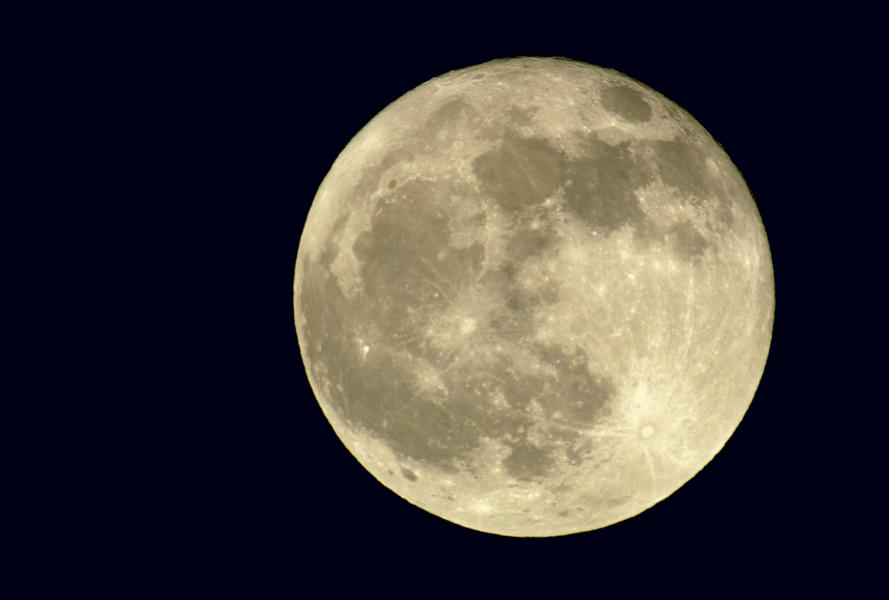Study: Most of the moon's water comes from the sun, not comets


A free daily email with the biggest news stories of the day – and the best features from TheWeek.com
You are now subscribed
Your newsletter sign-up was successful
A new study has revealed that the majority of the moon's surface water comes from solar winds, rather than from comets or from meteorite impacts, as was previously thought.
The study, published in the journal Proceedings of the National Academy of Sciences, found that the moon's water was actually "baked" through chemical reactions with solar winds. Researchers Alice Stephant and Francois Robert from the Sorbonne University's Museum National d'Histoire Naturelle analyzed samples of the moon's regolith — a.k.a. pulverized, rocky grains — and found water locked in the samples. They had assumed the rock samples would be dry, since surface water would have been "long lost to space," according to Discovery News.
The moon's surface has revealed ice deposits in polar craters in the past, but this is the first time that baked-in water samples have been discovered on the moon. The scientists have proposed that the baked-in water was a reaction of the solar winds' protons combined with the oxygen in the moon's dust particles, starting the creation process of hydroxyl, a tracer for water. Stephant and Robert estimate that this lunar water accounts for as much as 85 percent of the moon's surface water.
The Week
Escape your echo chamber. Get the facts behind the news, plus analysis from multiple perspectives.

Sign up for The Week's Free Newsletters
From our morning news briefing to a weekly Good News Newsletter, get the best of The Week delivered directly to your inbox.
From our morning news briefing to a weekly Good News Newsletter, get the best of The Week delivered directly to your inbox.
A free daily email with the biggest news stories of the day – and the best features from TheWeek.com
Meghan DeMaria is a staff writer at TheWeek.com. She has previously worked for USA Today and Marie Claire.
